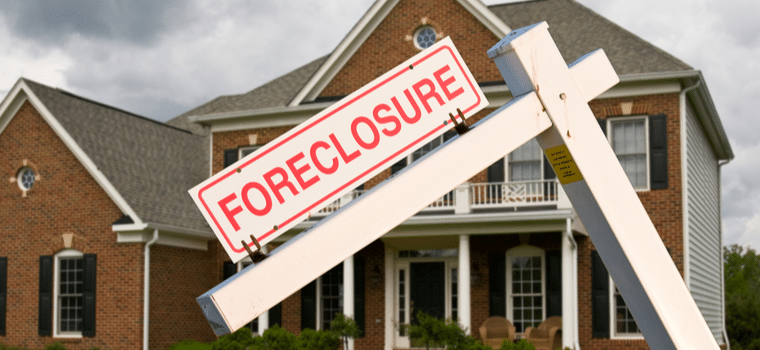Once a mortgage is noted as a foreclosure on a credit report, it remains for seven years. The seven-year period starts from the initial date of delinquency, which is noted as the first missed payment that resulted in foreclosure. After the seven years has expired, the foreclosure should automatically fall off the credit report.
What Is a Foreclosure?
A foreclosure is a legal action taken by a mortgage lender to reclaim a home. Because a mortgage is a secured loan, and the home is the collateral, the lender has the legal right to take possession of the house in the event of nonpayment.
How Much of an Impact Can a Foreclosure Have on a Credit Score?
Having a foreclosure added to your credit profile can have a seriously negative impact on your credit score. It can also affect your creditworthiness in the eyes of lenders and creditors. In general, the higher your credit score, the greater the impact a foreclosure may have.
Adding a serious delinquent event to an otherwise clean credit record can have a greater negative impact on a credit score than adding an additional delinquency to a credit record that already contains derogatory marks. For example, consumers who have a higher credit score might experience a more significant impact to their score due to a foreclosure, according to VantageScore Solutions, LLC. In contrast, consumers who have lower credit scores with prior delinquencies might not see the same kind of drop.
What to Do If a Foreclosure Remains on Your Credit Past 7 Years
If you notice that the foreclosure is still on your credit report after the seven-year mark, you have an option for getting it removed. You can contact the credit bureau that is still reporting the foreclosure — Equifax, Experian or TransUnion — to file a dispute.
Once you file a dispute, the credit bureau has 30 days to investigate and determine if your claim is valid. As part of the investigation, the credit bureau will contact the information provider — which in this case would be the mortgage company — to verify the seven-year time limit has passed.
If the credit bureau receives information from the provider that confirms that the foreclosure should no longer appear on your credit report, the provider must notify the remaining two credit bureaus so that your credit report can be corrected across the board.
Is it Possible to Get Approved for a Mortgage with a Foreclosure?
Even though a foreclosure is considered severe, that doesn’t mean that you’ll have to wait seven years to get another mortgage. You might be able to qualify for a new mortgage loan in as little as three years. The key is to demonstrate responsible credit behavior going forward, such as paying all your debts on time without fail.
Mortgage lenders will still be able to see the foreclosure on your record, but they’ll also note your credit behavior following the event. If a mortgage lender does agree to consider you for a loan, you may have to submit to stricter requirements, such as proving your income and offering a more substantial down payment to be approved for the loan.
Reasons a Foreclosure May Occur
The reasons for defaulting on a mortgage vary, but they often stem from major life events such as a job loss or unexpected emergency. In other instances, homeowners might overextend themselves financially and fall behind on their payments.
Foreclosure can also occur as a result of divorce should one or both parties decide to quit contributing to mortgage payments.
Monitoring Your Credit: A Vital Step for Credit Health
After a negative event, such as a foreclosure, keeping an eye on your credit is important. A good way to do that is to sign up for a credit monitoring product like ScoreSense.
ScoreSense offers consumers not just one — but all three — credit reports and credit scores. Plus, you’ll receive daily monitoring, monthly updates, and credit alerts, as needed.
If you haven’t taken steps to keep yourself updated about possible changes to your credit, why not? Give yourself some peace of mind and get started today.




